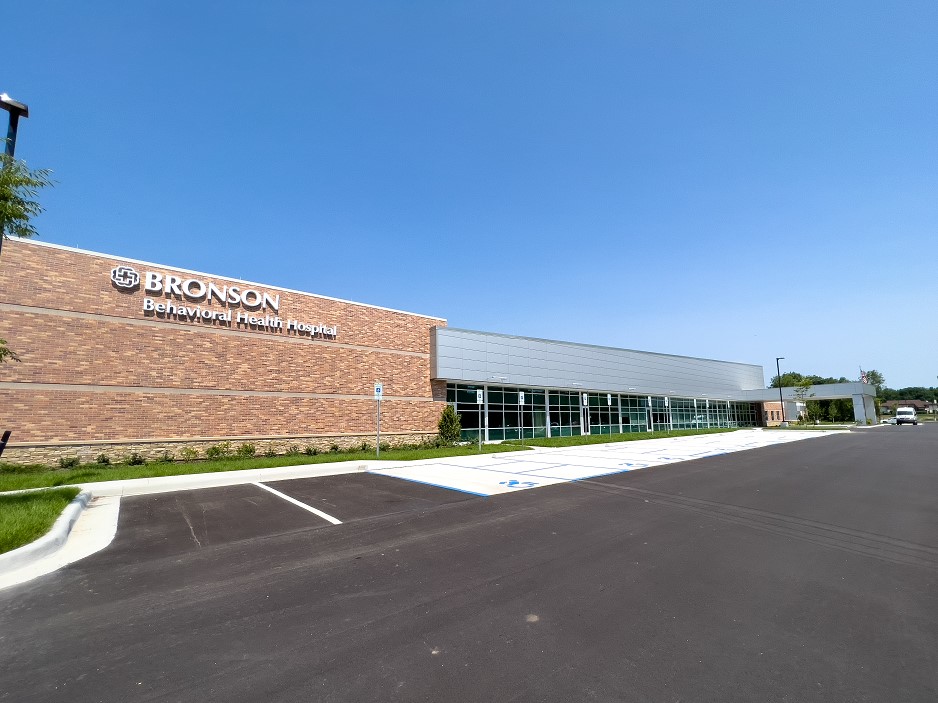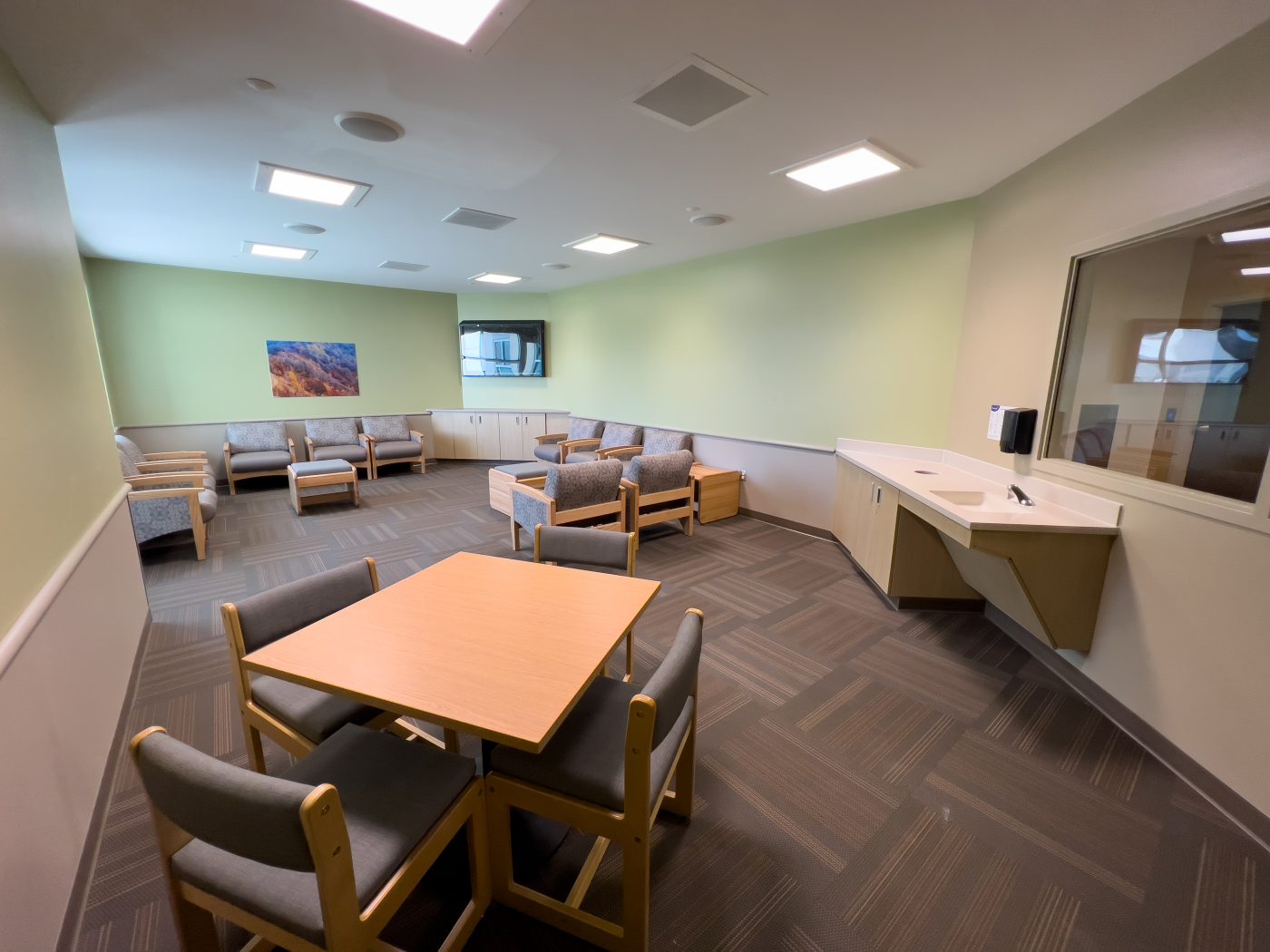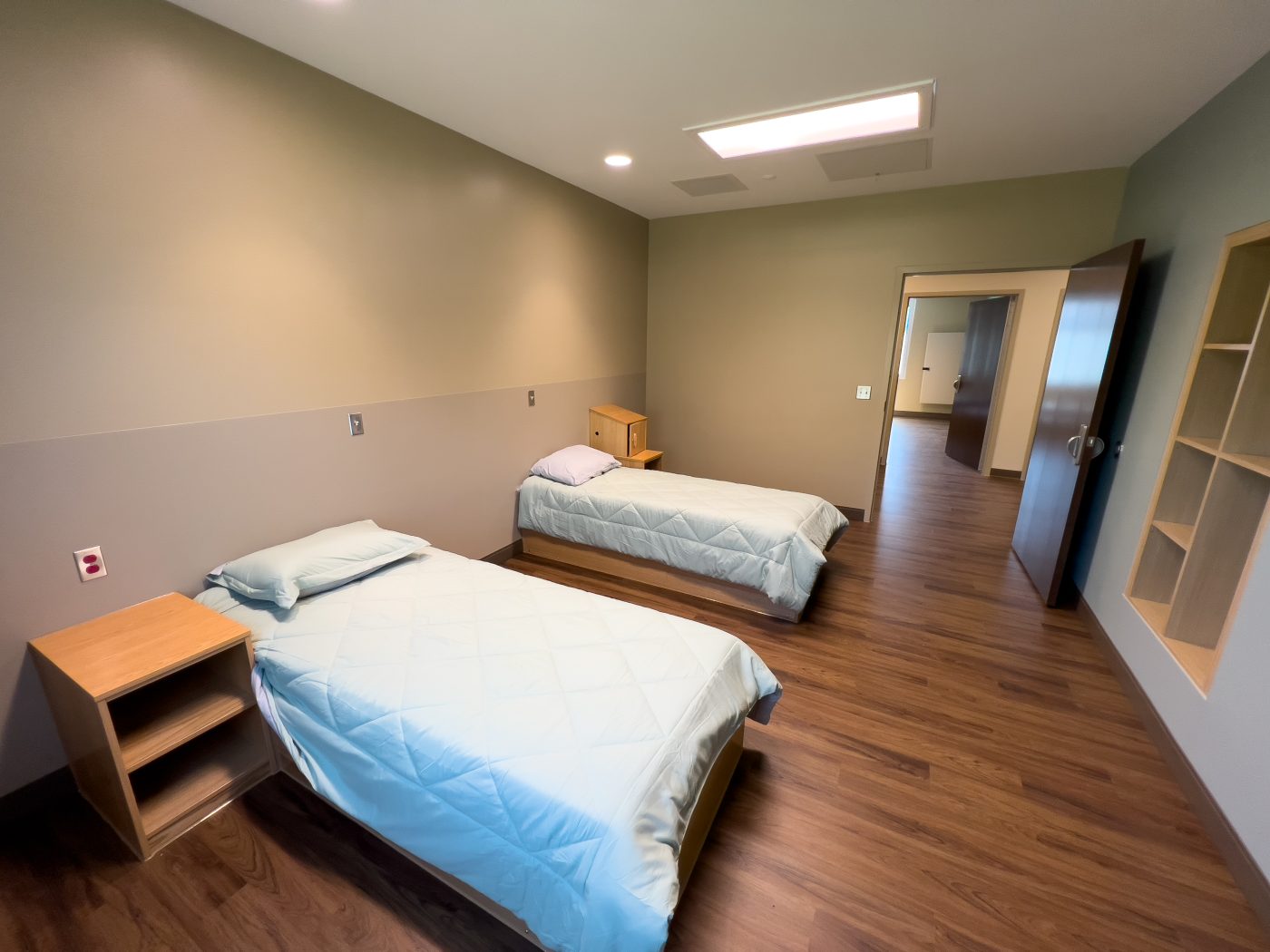People who are struggling with bipolar disorder can have unpredictable and extreme shifts in mood, known as episodes. Untreated bipolar disorder can negatively impact your relationships, job performance, and personal goals. However, with effective treatment, people who have bipolar disorder can learn how to manage their symptoms and get better.
Bronson Behavioral Health Hospital offers clinically exceptional care for adults age 18 and older who are suffering from bipolar disorder. Our new inpatient facility in Battle Creek, Michigan, features an exceptional care team that can help you achieve stabilization and begin healing.
What Is Bipolar Disorder?
Bipolar disorder is a mental health condition characterized by alternating episodes of mania and depression. There are multiple subtypes of bipolar disorder. However, the three major types of bipolar disorder are bipolar I, bipolar II, and cyclothymic disorder (cyclothymia), defined as follows:
- Bipolar I disorder: People who have bipolar I disorder have at least one manic episode that lasts for a week or longer. Mania is characterized by an elevated mood, increased energy, impulsivity, and sometimes psychosis. Depressive episodes may also happen, and they alternate with manic episodes.
- Bipolar II disorder: Unlike those who have bipolar I, people who have bipolar II disorder don’t experience full-blown manic episodes. Instead, they have repeated phases of hypomania, which are less severe but still involve elevated mood, increased energy, and heightened activity. Hypomanic episodes are followed by depressive episodes, like those experienced with bipolar I disorder.
- Cyclothymic disorder (cyclothymia): Cyclothymic disorder is a less severe type of bipolar disorder. People who have cyclothymic disorder experience episodes of hypomania and depression that go on for a minimum of two years. The symptoms are less intense than those of bipolar I and II, but they still affect daily functioning and well-being.
People who are displaying symptoms of bipolar disorder should receive a diagnosis from a qualified mental health professional. Treatment often includes medication, talk therapy, and lifestyle adjustments and can be highly effective.
Signs & Symptoms of Bipolar Disorder
Bipolar disorder is characterized by a range of signs and symptoms that can vary in severity and duration. These symptoms generally fall into two categories: manic or hypomanic episodes and depressive episodes.
Common signs and symptoms of manic or hypomanic episodes include:
- Elevated mood
- Increased energy
- Engaging in multiple activities at once
- Decreased need for sleep
- Rapid speech, often abruptly moving from one topic to another
- Racing thoughts that may seem uncontrollable
- Inflated sense of self-esteem
- High-risk behaviors, such as excessive spending and reckless driving
- Substance abuse
- Making decisions that have known negative consequences
- Irritability or agitation
- Increased sex drive
Signs and symptoms of depressive episodes can include:
- Persistent sadness or hopelessness for an extended period
- Loss of interest or pleasure
- Fatigue and low energy
- Changes in appetite and weight
- Insomnia or oversleeping
- Difficulty concentrating
- Feelings of guilt or worthlessness
- Recurring thoughts of death by suicide
- Restlessness or slowed movements
- Social withdrawal
Specific bipolar disorder symptoms are different from person to person, and people may have different patterns of mood episodes. If you or someone you know is experiencing symptoms of bipolar disorder, it is crucial to reach out to a professional for an accurate diagnosis and appropriate treatment.
Bipolar Disorder Statistics
The National Alliance on Mental Illness (NAMI) reports the following statistics on bipolar disorder:
- 2.8% of American adults struggle with bipolar disorder.
- Most Americans who have bipolar disorder experience the onset of symptoms around age 25.
- 83% of those who are suffering from bipolar disorder have severe symptoms.
Potential Effects of Bipolar Disorder
Bipolar disorder can have significant negative effects on a person’s life, including:
- Impaired functioning: Episodes of mania or depression can significantly impact a person’s ability to function in their daily life. Bipolar disorder may interfere with work, school, and other responsibilities.
- Relationship difficulties: Intense mood swings of bipolar disorder can strain relationships with family, friends, and romantic partners. The symptoms of unpredictable behavior during manic episodes and withdrawal during depressive episodes can be challenging for loved ones to understand.
- Employment challenges: Untreated bipolar disorder can affect work performance and career stability. During manic episodes, people may take on too many tasks or make impulsive decisions that have negative consequences. During depressive episodes, they may struggle with low motivation and decreased productivity.
- Financial problems: Impulsive spending or engaging in risky financial behaviors during manic episodes can lead to financial difficulties. In addition, the inability to maintain employment due to bipolar disorder symptoms can add to financial stress.
- Substance abuse: People who struggle with bipolar disorder are at a higher risk for developing co-occurring addiction concerns. Some people may turn to drugs or alcohol to cope with extreme mood swings or to manage depressive episodes.
- Physical health complications: Untreated bipolar disorder can contribute to physical health concerns. Sleep disturbances, appetite changes, and neglect of self-care during mood episodes can negatively impact overall health and well-being.
- Increased risk for death by suicide: Those who have bipolar disorder are at an elevated risk for death by suicide. People can sometimes have suicidal thoughts when they are experiencing the symptoms of hopelessness and despair during a depressive episode. It is crucial for individuals who are suffering from bipolar disorder to seek professional help and support to manage these risks.
- Impact on quality of life: The chronic and recurrent nature of bipolar disorder symptoms can significantly affect a person’s overall quality of life.
The effects of bipolar disorder can be devastating. However, with a proper diagnosis, treatment, and support, people who have bipolar disorder can effectively manage their symptoms and lead fulfilling lives. Seeking professional help, adhering to treatment plans, and building a strong support network are essential steps for avoiding the effects of bipolar disorder.
Therapies & Services Used in Bipolar Disorder Treatment at Bronson
When people have a manic or depressive episode that poses a risk to themselves or others, hospitalization may be necessary to ensure their safety and stabilize their symptoms. Inpatient bipolar disorder treatment can be an ideal option for those who want to build a foundation for healing.
Bipolar disorder treatment typically involves a combination of therapies and services that are tailored to the patient’s needs. The primary goal of inpatient care is to stabilize mood, reduce the frequency and intensity of episodes, and improve overall quality of life. Bronson Behavioral Health uses various combinations of the following therapies and services to treat bipolar disorder:
- Medication: Medications are often a key component of bipolar disorder treatment. If you and your care team decide to incorporate medication into your treatment plan, you can meet regularly with a psychiatrist who can monitor your responses over time. Registered nurses and other behavioral health staff can also offer consistent support.
- Individual therapy: Talking with a counselor in individual therapy can help patients process their thoughts and emotions and develop new coping skills.
- Cognitive behavioral therapy (CBT): Cognitive behavioral therapy can help patients identify and change negative thought patterns and behaviors that contribute to mood episodes.
- Family therapy: Family therapy can help patients and their family members improve communication and problem-solving skills. We offer family therapy based on the needs of the patient.
- Group therapy: Group therapy can offer patients who have bipolar disorder a safe space to share experiences, receive encouragement, and learn from others who are facing similar challenges. Bronson Behavioral Health offers daily group therapy.
At our inpatient treatment center, patients who are suffering from bipolar disorder can work closely with a qualified team of mental health professionals to develop a comprehensive care plan that addresses their needs. Treatment approaches can vary, and adjustments may be made over time to promote long-term healing.
Why Choose Bronson’s Inpatient Bipolar Disorder Treatment Facility?
For people who have bipolar disorder, an inpatient hospital can offer the stabilization needed to begin healing. Inpatient care provides many features that can address your treatment needs.
In addition to clinically effective therapy and medication management services, Bronson Behavioral Health offers the following features:
- Safety and security: At our inpatient mental health facility, we prioritize the safety and security of our patients. We strive to maintain controlled access, trained staff, and procedures that ensure patients’ physical safety, prevent self-harm or harm to others, and maintain a therapeutic environment.
- Compassionate support: At our inpatient hospital, our trained healthcare professionals, which include psychiatrists, nurses, and mental health technicians, are consistently available to offer patients compassionate support.
- Co-occurring addiction treatment: People who have bipolar disorder can sometimes struggle with substance use disorders as well. We can treat bipolar disorder and addiction simultaneously to ensure comprehensive treatment.
- Structured daily routine: We provide a structured daily routine, which can be particularly beneficial for people who have been experiencing disruptive bipolar disorder symptoms. Having a predictable schedule can help promote stability, reduce anxiety, and provide a sense of security.
- Peer support and community: Being at an inpatient facility allows patients to connect with peers who may be facing similar challenges. The shared support from fellow patients can be invaluable for healing, reducing feelings of isolation, and fostering a sense of community.
- Discharge planning and aftercare support: Bronson Behavioral Health prepares patients for a successful transition back to their communities. We develop a plan for continuing care, which can connect patients with outpatient treatment providers, medication management services, support groups, and community resources. Aftercare support is crucial for maintaining the progress made during the inpatient stay.
Those who struggle with bipolar disorder can experience an emotional toll that affects their well-being and leads to distress. If you have any questions about whether Bronson’s inpatient bipolar disorder treatment facility may be the right place for you or your loved one, please contact us. Our compassionate staff can help you determine your best treatment options.
This content was written on behalf of and reviewed by the clinical staff at Bronson Behavioral Health Hospital.






